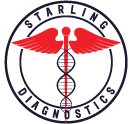
Preventive Screenings: Why Early Detection Matters for Your Health
Preventive screening involves avoiding a range of tests and examinations regularly performed to detect potential health issues at early stages. Anyone who wants to maintain good health and well-being should get preventative screenings even when they feel perfectly healthy.
Let’s discuss the importance of early detection and some preventive screening tests you should get based on your unique health needs.
Importance of Early Detection
Our body often manifests abnormalities in the form of symptoms. These symptoms can be physical symptoms like pain, fever,and fatigue; emotional symptoms like irritation, anxiety,and mood swings; cognitive symptoms like confusion and difficulty concentrating; and behavioral symptoms like changes in sleeping habits, eating habits, and others.
While these symptoms can provide valuable clues to potential health problems, many underlying health conditions are asymptomatic, especially in their early stages. Preventive health screening is a great way to uncover your asymptomatic health problems.
Preventive health screenings can also help determine your risk for many life-threatening health conditions, enabling you to take proactive measures to mitigate those risks long before you start experiencing symptoms. They also allow your doctor to develop a treatment plan that is likely to be more successful and effective.
Preventive health screening also prevents complications and disability that may arise if the disease is left undiagnosed and untreated, as well as costly outcomes of chronic conditions. What’s more? By screening your body for potential health conditions, you can manage your health over the long term.
Common Preventive Health Screening Tests
When it comes to preventive health screening tests, there’s no one-size-fits-all approach. Generally, at your annual wellness checkup, your preventive healthcare provider will review your medical and family history, assess your overall health, and consider your age gender and risk factors to determine the right type of screening tests for you.
The following are some of the most commonly performed preventive screening tests.
Pap Smear
This test is commonly performed along with the pelvic exam to screen for cervical cancer or human papillomavirus (HPV) infection in females. A pap smear is recommended for women between the ages of 21 and65 years every three years.
Mammograms
A mammogram is an X-ray exam of the breast recommended for you if you have a family history of breast cancer or are over the age of 50 years.
DEXA Bone Density Scan
This preventive screening test is used to assess bone mineral density, particularly in post-menopausal women and older adults. DEXA bone density scan is one of the most commonly used screening tests to detect osteoporosis or osteopenia– bone health problems in which bones become porous due to a lack of minerals.
Prostate Specific Antigen (PSA) Test
Men with a family history of prostate cancer and over 50 are recommended to have prostate-specific antigen tests to detect prostate cancer.
Blood Glucose Test
This is one of the most commonly performed laboratory tests. The glucose test helps identify diabetes or pre-diabetes–chronic health conditions in which there is an increased amount of blood sugar in the blood.
Body Mass Index Assessment
Body mass index or BMI is a calculation performed based on your weight and height. BMI is used to assess if an individual is underweight, normal weight, overweight or obese.
Preventive Healthcare in Bronx, NY
If you are proactive about your health and are looking for high-quality, comprehensive preventive healthcare services in Bronx, NY, visit our preventive healthcare providers here at Starling Diagnostics. Our preventive healthcare provider takes pride in offering a comprehensive range of preventive health screening tests, including, DEXA bone scans, mammograms, colonoscopies, ultrasounds, blood cholesterol tests, pap smear tests, and others to people of all ages and gender.
To find out more about the preventive health screening tests we offer at our facility or to arrange a consultation with one of our preventive health care providers, contact us today at (718) 319-1610 or use our convenient, secure online appointment request form.
